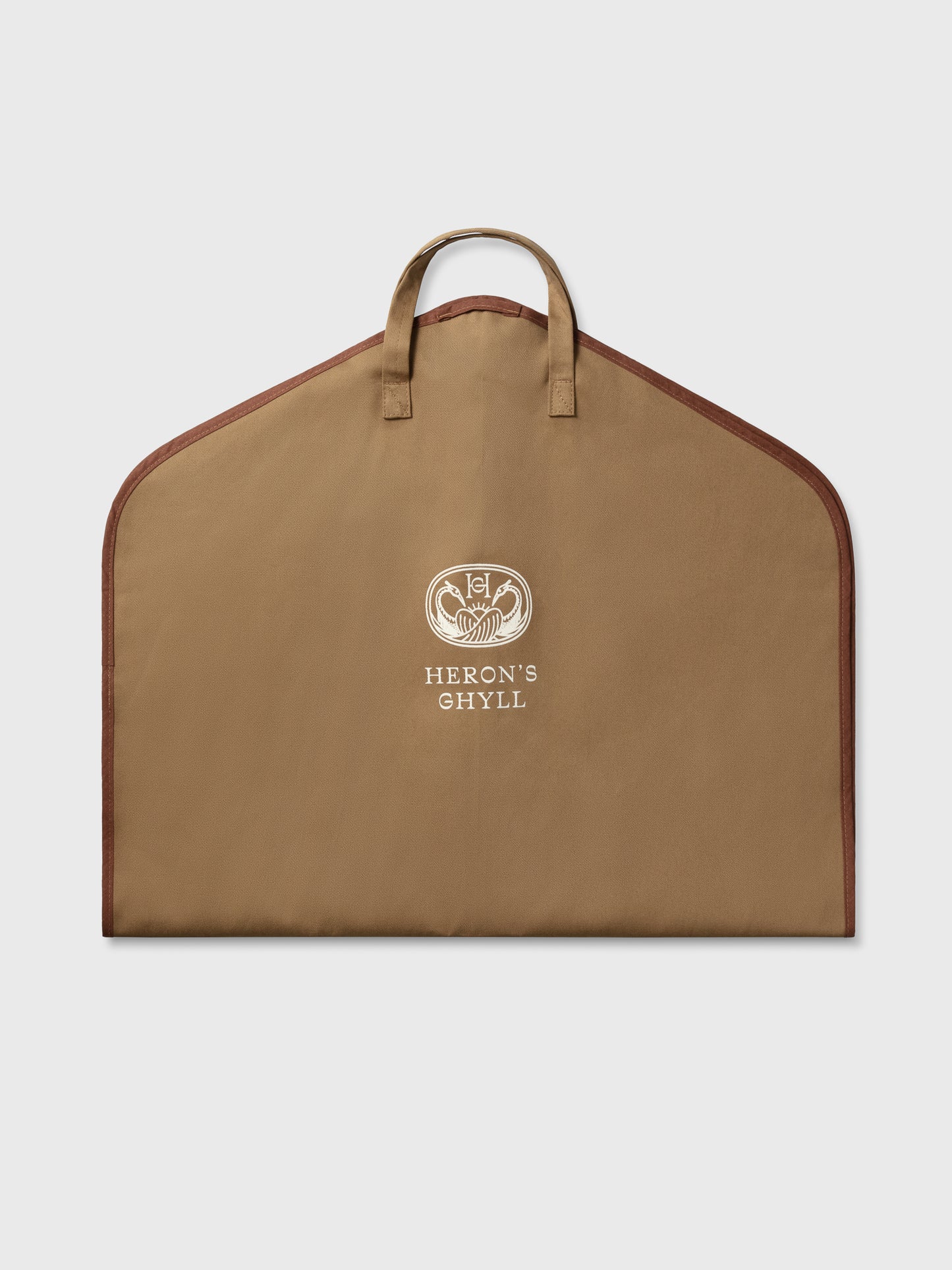
This was never in the pattern
Share
My former business school peers contemplate early retirement; I haul bolts of fabric on and off the 341 with a regularity that feels less like routine and more like penance, as if the bus route itself were a slow-moving reminder that some ambitions take the long way around.
Waiting for the 341 is an act of blind faith. You wait. And wait. And wait. Thirty-five minutes pass, long enough to watch nine 38s glide past in mocking succession. Then, just as you’re about to throw in the towel—three of them arrive at once, a procession of empty, lumbering double-deckers trundling down the road like some perverse municipal joke.
You could spend a lifetime trying to decode its schedule, but the truth is, there isn’t one. The 341 simply arrives when it wants to. Or not at all.
///
It’s late morning, grey and overcast, the sky has the same washed-out color as the pavement.
I’m on the 341, dragging a suitcase full of Irish linen, pushing past the crush of bodies downstairs. Two prams occupy the designated wheelchair space, leaving nowhere for me to stand with my suitcase without blocking the aisle. The CCTV screen shows the top deck is mostly empty. A relief.
I haul my trunk up, gripping the rail as the bus jerks forward.
I settle near the front. The city slides past in its usual increments—corner shops, council flats, the same fried chicken place on every other street. My mind drifts.
Then—BANG.
A crack so loud my body reacts before my brain catches up.
BANG. BANG.
I twist back in my seat. A woman stumbles past me, rushing for the stairs. Another man moves fast. I follow their eyes—
A massive man, just a few rows behind, hammering the window with both hands. The sound is violent, not just loud—he means for it to break. His movements are jagged, too fast, as if his body is struggling to keep up with his mind.
He lurches forward, clamps his teeth onto the rail in front of him, gnashing like an animal worrying a bone. He bites down, hard—hard enough that I wonder if his teeth will break. His eyes are wide, flicking left to right in erratic, stuttering motions.
Then he jerks back and slams the window again, harder this time.
BANG. BANG. BANG.
The pane shudders but holds.
A noise from deep in his throat, something half-formed, unfinished. Then another gnash.
I turn back in my seat. I could go down now, try to slip past. But the stairwell is narrow, my suitcase unwieldy. He is close enough that if I pass, he could reach.
Someone else moves, quick but quiet.
BANG. BANG. BANG.
I should have followed. The sound continues.
Then—abruptly—it doesn’t. No tapering off, no winding down. Just silence.
At Newington Green, the rest of the top deck empties. I could leave with them, get the next one. But I’ve already waited long enough, exerted too much effort in getting the bag up the stairs. I’m locked in. The doors wheeze shut. The engine grumbles forward.
Through the window, a new luxury development. A billboard promises Bespoke Living in the Heart of North London.
The man has grown quiet.
///
Vicki looked up as I stumbled into the room, a pencil in her hand.
“You made it, then.”
“Oh my god. You won’t believe what happened on the bus. Some man—" I gestured vaguely, “—tried to eat the handrail.”
She raised an eyebrow.
"I’m not exaggerating. Chewed. His eyes went from left to right like a—like a—" I snapped my fingers, searching for the word. "Like an animal. A wild animal. He went like this—"
I tried to imitate it, widening my eyes until they strained, jerking them side to side in sharp, erratic snaps, contorting my face into a snarl, teeth bared.
“And he kept hammering the glass. I thought he was going to break it.”
Vicki let out a surprised laugh. "What?!"
I dropped my suitcase by the cutting table and exhaled, pressing my fingertips into my temples.
"I’m too old for this shit."
I launched into my usual rant—the backache from hauling fabric across the city, samples waiting to be dropped off at the showroom, elastic tape I still needed to pick up from MacCulloch. The constant grind. The never-enough feeling.
Vicki listened, sipping from her mug.
Eventually, I asked:
"Why do we do it?"
The question caught us off guard.
We both laughed—thin, automatic.
Then silence—heavier than the question deserved.
I waved it off.
"Anyway. How are you? How’s everything?"
She set the mug down, smoothing the pattern paper with her palm—slow, deliberate, as if flattening out the conversation itself.
She told me about the commute—two hours today—and about her son, stuck on the cusp of adolescence. How he had started painting his nails. How the boys at the new school hadn’t taken well to it. How he had started saying things at home—"I hate you," among them.
"He doesn’t hate you," I said. "He just hates where he is. He’ll come around."
I knew the feeling.
Vicki didn’t reply. Her fingers kept tracing the edge of the pattern paper until the seam flattened.
"I hope so," she said, eventually.
She nudged a roll of pattern paper toward me—gentle but firm.
"Shall I start the clock?"
The clock should have started twenty minutes ago. We both knew it.
I rubbed my eyes, exhaled, straightened up.
"So I’ve been thinking about a collarless jacket..."
We got to work.
///
But first, we went back to the notch lapel jacket. I slipped into the sample, studying the reflection. The proportions were close—back balance needed three centimeters, zero at the front—but something was still off. I couldn’t place it yet.
Vicki moved without needing direction. She pinned the welt pocket. “Lower the right side seven millimeters so it sits straighter.”
We turned our attention to the lapel. The room fell quiet. The lapel always reveals everything.
“Something’s off here.”
Vicki squinted. “You think width?”
“Has to be. The break’s looking a little heavy.”
She pinned the excess at the collar point. The line sharpened immediately. We both saw it.
“That’s so 80s,” she said with a laugh.
“Perfect!”
There was a rhythm to these meetings, a shorthand built over years.
The conversation always began the same way—measurements, adjustments, the logic of seam allowances. Hands moved over fabric, pinching, folding, pinning. We spoke in half-sentences. A glance, a gesture, and Vicki knew.
Five years ago, it wasn’t like this. I couldn’t articulate what I wanted; she couldn’t read between the lines. Back then, every detail had to be spelled out.
She paused at the sleeve-head.
“Maybe half a centimeter higher.”
A pin slid in.
She adjusted the cuff.
“Two centimeters off here, zero at the elbow. Keep the banana shape.” Our way of saying sleeve curve.
Vicki stepped back; I shifted my stance, watching the reflection. The jacket was starting to look right.
///
We began packing up.
Vicki moved around the room with her usual ease, gathering pins into neat rows, folding pattern paper with practiced precision. I wasn’t nearly as composed. The sample went back into my suitcase, the linen folding along creases it shouldn’t have had.
I was complaining about how worried I was about the cost of the revisions. She listened for a moment, then said, “Yeah, I’ve watched you complain about the cost of everything all these years, and now I get it. We’re starting a deli—just got the keys. We have to refit everything quickly.”
“What?! Are you leaving?” I blurted out.
“No, no. It’s mostly my husband who will be running it, but I’ll help on Fridays and Saturdays. And I’ll be around on Tuesdays and Thursdays if he needs me.”
I knew her schedule well. When we first started, she was in the office five days a week. Always the first to arrive. Then it was four. Now, just two. The deli would slip easily into the rhythm of her week.
I wish I could say my first reaction had been the right one—unqualified enthusiasm, support without hesitation:
Yes, what a fantastic idea. I totally get it—the entrepreneurial impulse, the desire to start something new. Let me know if I can help.
But it wasn’t. My first thought was much smaller than I’d like to admit.
Vicki didn’t notice my pause. Or maybe she did and pretended not to.
She kept talking, describing a small place in the country. Fresh bread, local cheeses, craft beer her husband brewed himself. A deli that sounded like it belonged in a film—the kind of venture people moved on to after they had figured out what they really wanted.
I smiled. Said all the right things.
“That sounds amazing. Niche. But very you.”
But I could feel it—that familiar pang, sharp and insistent.
///
There are certain relationships that exist within strict, preordained limits, shaped less by choice than by the quiet mechanics of routine. They work the way turnstiles do—momentary, transactional, designed for passage rather than lingering.
For a time in my twenties, I had a job that could only be described as cushy. The kind where nothing much happened, and then, at 5:30 p.m., everyone dispersed in a choreographed mass exodus.
During this period, I went to the bar at the Mandarin Oriental almost every other weekday. It had an expensive emptiness I found compelling—floor-to-ceiling windows opening onto KLCC Park, a ceiling that curved in sweeping, architectural folds like the interior of a shell.
Over time, I got to know one of the bartenders—Aras, early thirties, part-time MBA, dating a Chinese girl he once described as “wild,” which was probably shorthand for something he was either too embarrassed or too inarticulate to explain. These are the only details that have stuck.
Most nights, we just shot the shit. He would tell me about the guests—who tipped well, who didn’t, who arrived with someone they shouldn’t have. We had a game: "weirdest drinks people ordered." A virgin Negroni once made the list.
At some point, I stopped needing to order. I’d walk in, wave at the bar, head to my table, and a bottle of Tiger would appear. Not quite friendship, but something adjacent.
And then one day, he was gone.
For a moment, I thought about asking what had happened. I even considered reaching out. But what would I have said? "Can we be friends?" The whole point had been its structure, the quiet agreement that it began and ended here. Anything else would have been like trying to turn back through a turnstile—possible, maybe, but graceless. It was perfect in its limits, poignant in its inevitability.
///
Back in the sample room, Vicki had returned to her computer and was typing up the fit notes with the same quiet focus she brought to everything. The soft, steady tapping filled the room as I zipped up my bag. This was how it always ended.
“Alright, Vicki. So great to see you as always. Guess it’s back to the bus for me.”
She looked up with a grin. “Try not to get eaten on the way back, yeah?”
I laughed. “No promises.”
“I’ll send the fit notes for you to approve,” she said. “Probably start on the amendments next week.”
“Perfect. Thanks, Vicki.”
She turned back to her screen.
I hesitated.
“Vicki.”
She looked up again.
“Promise me—if you ever leave, you’ll reach out. Maybe we could still work together. Freelance or something.”
She laughed. “You’re so sweet. But don’t worry, I’m not going anywhere.”
Somewhere nearby, a door clicked shut.






